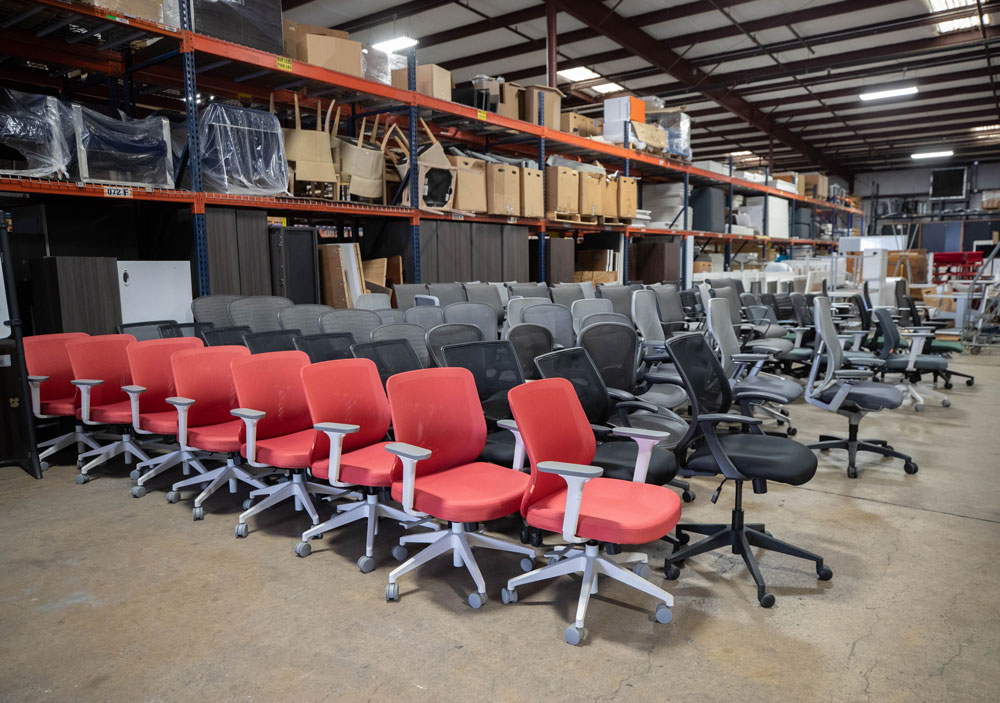Why Is Proper Lumbar Support Essential in Office Lounge Chairs, And How Does It Contribute To Overal
In the fast-paced realm of modern workplaces, the significance of ergonomic design cannot be overstated. Office furniture, particularly lounge chairs, plays a pivotal role in shaping the work environment and influencing the well-being of employees. One crucial aspect that often takes center stage in this ergonomic narrative is the provision of proper lumbar support. This article delves into the reasons why adequate lumbar support is indispensable in office lounge chairs and explores how it contributes to the overall comfort and health of individuals in professional settings.
Understanding the Essence of Office Lounge Chairs:
Office lounge chairs have evolved beyond mere functional pieces of furniture. They are now regarded as essential components of a well-designed workspace that prioritizes employee comfort and productivity. The term "office seating" encompasses a broad spectrum of furniture, but the focus here is specifically on lounge chairs – the seating choice that seamlessly combines style and functionality.
The Lumbar Support Imperative:
The lumbar region, located in the lower back, is a critical area that is susceptible to strain and discomfort, especially during prolonged periods of sitting. Office workers, spending a significant portion of their day seated, often encounter issues related to poor posture and inadequate lumbar support. Understanding the anatomy of the lumbar spine and its natural curvature lays the foundation for appreciating the significance of proper lumbar support in office seating.

Anatomical Insights into Lumbar Support:
The lumbar spine consists of five vertebrae, and it naturally forms a slight inward curve known as lordosis. Maintaining this curvature is vital for spine health, as it aligns the spine and supports the upper body. When individuals sit for extended periods without proper lumbar support, the spine can deviate from its natural alignment, leading to discomfort, fatigue, and even chronic issues over time.
Office Seating Challenges:
Many office lounge chairs, despite their aesthetic appeal, often lack the necessary lumbar support. The absence of proper lumbar support can contribute to a range of issues, including back pain, muscle strain, and decreased productivity. Employees may unknowingly adopt poor sitting habits, such as slouching or hunching, exacerbating the risk of long-term health problems.
The Ergonomic Revolution:
Recognizing the ergonomic imperative, contemporary office furniture designers are increasingly incorporating lumbar support features into their creations. Ergonomics, the study of designing tools and environments to fit the human body, has become a guiding principle in the evolution of office seating. Lounge chairs are no exception, as they undergo a transformation to prioritize not only aesthetics but also the well-being of the individuals using them.

Benefits of Proper Lumbar Support:
Pain Alleviation:
Adequate lumbar support helps distribute the body's weight evenly, reducing pressure on the lower back. This, in turn, alleviates pain and discomfort associated with prolonged sitting.
Posture Improvement:
Proper lumbar support encourages individuals to maintain a neutral spine position, promoting good posture. This not only enhances physical comfort but also contributes to a more professional and confident appearance.
Prevention of Musculoskeletal Disorders:
Chronic back pain and musculoskeletal disorders are common outcomes of prolonged sitting without proper lumbar support. Well-designed lounge chairs can significantly reduce the risk of these health issues.
Enhanced Productivity:
Comfortable employees are more likely to stay focused and engaged in their work. By addressing the ergonomic needs of individuals, office lounge chairs with proper lumbar support contribute to increased productivity and job satisfaction.
Incorporating Lumbar Support in Office Lounge Chairs:
Adjustable Lumbar Support:
Lounge chairs equipped with adjustable lumbar support mechanisms empower individuals to customize the level of support based on their unique preferences and needs.
Comments
Post a Comment